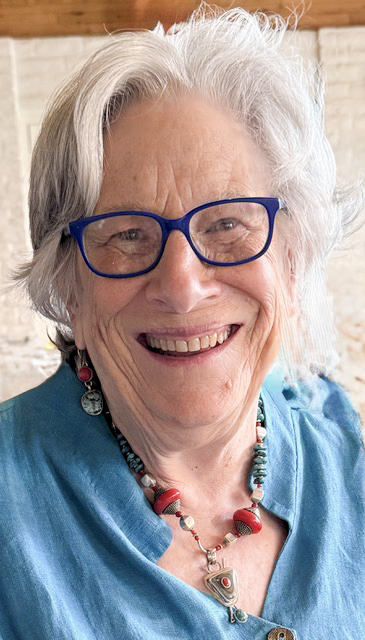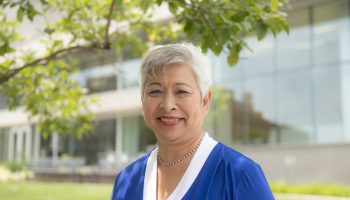
Deborah Trefts
Staff Writer
Numerous factors influence the aging process. Although a number of them, including genetics, are beyond one’s control, many others are not.
Because it’s in the best interest of each generation, not only Baby Boomers, to age successfully, many people have been trying to make that a priority. For whatever reason, many others have not — at least not yet.
At 9:15 a.m. Tuesday in the Chautauqua Women’s Club House, Patricia S. Lemer will give the final presentation of the 2025 Chautauqua Speaks program, titled “Healthy Aging at Any Age.”
“This isn’t luck,” Lemer said. “You have a lot of control. You don’t have control over the weather and the bad air in Pittsburgh. But you do have control over the water you drink and what you feed your family.”
During Week Nine of the 2019 season, she talked about Autism Spectrum Disorder at Chautauqua Speaks. At that time, her third book, Outsmarting Autism: Build Healthy Foundations for Communication, Socialization, and Behavior at All Ages (Updated and Expanded), had been out for five months. As she told The Chautauquan Daily then, she downloaded her brain into it.
On Tuesday mornings during the summer of 2019, Lemer and a professor in the special education department at New Jersey City University, Andy McCabe, began broadcasting “The Autism Detectives” live on HealthyLife.net Radio. She said that now there are more than 100 episodes.
Now, six years later, there’s also a version of Outsmarting Autism (Updated and Expanded) with a “remarkable AI component,” she said. “… Just like ChatGPT, it answers questions in perfect English in my voice. It’s free to the public.”
Since then, “I’ve been writing my fourth book,” Lemer said. “When Outsmarting Autism went out of print, I had to decide what to do. With a lot of encouragement from my Facebook friends around the world, (who) wanted me to write a new book, (I have). Autism is out of fashion because of the neurodiversity movement, (which) did not want to be outsmarted. Society now embraces autism, with all of its quirks.”
Continuing on she said, “But autism, ADHD (Attention Deficit Hyperactivity Disorder), LD (Learning Disabilities), OCD (Obsessive-Compulsive Disorder), SPD (Sensory Process Disorder) and other mental health disorders come with things we don’t love. … We know that biology is not their friend. I decided to update (Outsmarting Autism) and embrace the neurodiversity community sociologically and by understanding the causes of biomedical sensory issues.”
This fall, Lemer’s new book Total Load Theory: Transforming Lives in Autism, ADHD, LD, SPD and Mental Health will be published.
“Total Load Theory is an engineering term about why a bridge collapses,” she said. “It’s about all the stressors on the bridge that precede the last one before the collapse. I realized I could apply it to aging and longevity and disease. So that’s how I got to be an instant longevity expert.”
Lemer clarified, “It’s Total Load Theory and understanding the stressors in your individual total load and how to avoid the bad stuff, maximize the good stuff and recognize what you have control of and what you don’t, and since you’ve lived however many years in a toxic world, how to get bad stuff out and to detoxify.”
In addition to Outsmarting Autism and her “own 50 years of experience,” Lemer said she’s basing her talk on two books: The New Rules of Aging Well: A Simple Program for Immune Resilience, Strength, and Vitality by Frank Lipman and Danielle Claro (2020), and Outlive: The Science and Art of Longevity, by Peter Attia with Bill Gifford (2023).
“During COVID, I started a (multinational) Healthy Aging Book Club when people were running out of books to read,” she said. “… We read those two books. It was really fun. (And) we read about the ketogenic diet.”
The New Rules of Aging Well and Outlive “talk about the five pillars of health,” she said. “Eat well, sleep long, move often, repair relationships and have some kind of spiritual practice. They all fit very well into Chautauqua. These are the foundations of health. In 40 minutes, (I’ll) go into what that means.”
For instance, “What is eating well?” Lemer continued. “… I’ll go over what media tells you. … As you age, everything disrupts sleep, so what are some of the things you can do? Why should you move? Why is it important? What if you can’t? (Then there’s) the non-tangibles — emotional health, relationships, toxic relationships, past generational pain. … (And) keeping your brain alive — giving back, values, ‘it’s not just about me,’ a spiritual component, meditation, other people, philanthropy, volunteering.”
Lemer has developed two forms of a questionnaire — one for adults and the other for children — that she calls “The Environmental Epigenetics Evaluator” or “E-cubed.” Environmental epigenetics is about studying external environmental factors that do not alter the genetic code but that affect the gene expression of developing embryos.
These questionnaires “are checklists to look at what your risk factors are,” she said. “There are a half a dozen categories. They’re weighted, so you get a score. For example, ‘I don’t eat breakfast.’ ‘I use a computer more than three hours a day.’ ‘I rarely exercise.’ The more points you get, the higher your risk for disease, pain, diagnoses. The purpose is to raise your awareness, so you can adapt to healthier options and lower your score and lower your risk.”
Because “health span” and “life span” are too often not the same, Lemer takes care to distinguish between them.
“ ‘My grandmother lived to 100; isn’t that great?’ ” Lemer quoted. “Well, it’s great if she didn’t wake up one morning, and she’d walked to her 99th birthday party. But how many of us want to be in pain and suffer? Our goal is to have a long health span and a long life span. That’s what longevity is — to have a long, healthy life and die in our sleep.”




